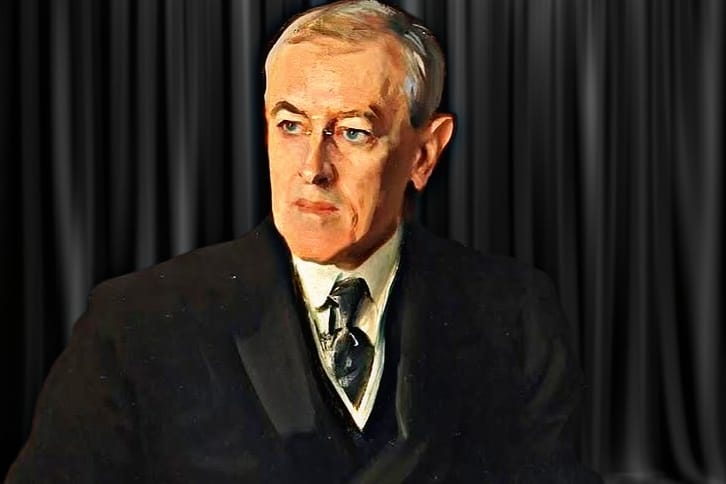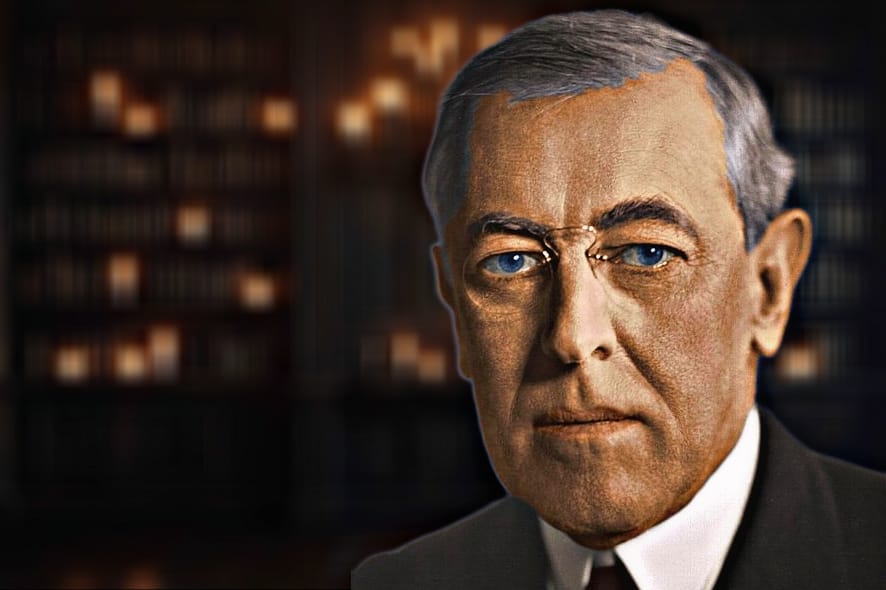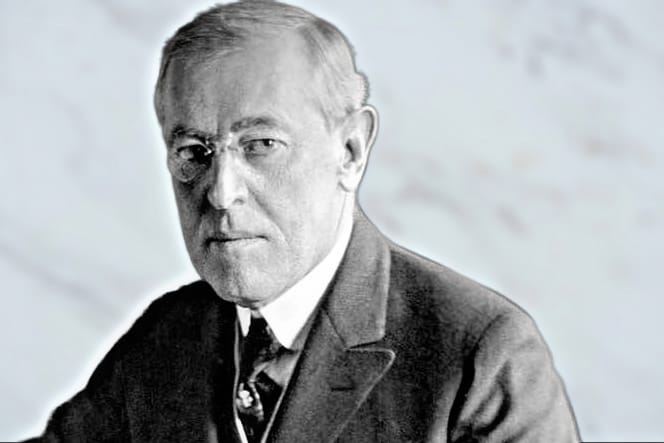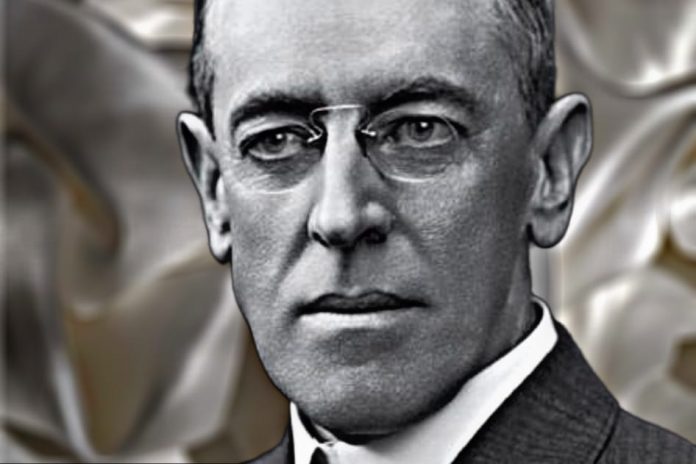Woodrow Wilson, the 28th President of the United States, remains one of the most complex and transformative figures in American political history. Serving as president from 1913 to 1921, Wilson’s tenure was marked by monumental changes, not just in the U.S. but on the world stage. Known for his intellectual rigor, idealistic vision, and complex legacy, Woodrow Wilson’s impact continues to influence American politics and international relations to this day.
In this article, we will explore the life, presidency, policies, and legacy of Woodrow Wilson, delving into the key moments that shaped his political career and examining the lasting effects of his decisions on the United States and the world. By the end of this piece, you’ll have a comprehensive understanding of Woodrow Wilson, his leadership style, and his place in history.
Early Life and Education
Woodrow Wilson was born on December 28, 1856, in Staunton, Virginia, into a family with deep Presbyterian roots. His father, Joseph Ruggles Wilson, was a Presbyterian minister who strongly influenced his early development. Wilson’s mother, Janet Woodrow Wilson, was a deeply religious woman, and together, they instilled in their son a love for learning, ethics, and public service.
Woodrow Wilson was a brilliant student, earning his undergraduate degree from Princeton University in 1879. His academic talents were immediately apparent, and he went on to earn a Ph.D. in political science from Johns Hopkins University in 1886, making him one of the few U.S. presidents to hold a doctorate. His dissertation, titled “Congressional Government,” focused on the U.S. Constitution and the structure of American political institutions. It was widely praised and laid the foundation for his future political career.
After completing his education, Woodrow Wilson began his career as an academic, becoming a professor of political science at Bryn Mawr College and later returning to Princeton, where he eventually became president of the university in 1902. His time as an educator and administrator at Princeton helped shape his ideas about governance, democracy, and the role of government in society.
Entry into Politics

Woodrow Wilson entry into politics was, in many ways, a natural extension of his academic interests and leadership experience. In 1910, he was persuaded to run for governor of New Jersey. Running on a platform of reform, Woodrow Wilson focused on breaking up monopolies, improving workers’ rights, and instituting political reforms. His campaign resonated with New Jersey voters, and he won the election by a narrow margin.
As governor, Woodrow Wilson earned a reputation as a progressive reformer. He pushed through legislation aimed at improving child labor laws, instituting direct primaries, and establishing workers’ compensation laws. His bold, action-oriented approach to reform caught the attention of national political leaders, and in 1912, Wilson was nominated as the Democratic candidate for president.
The 1912 Presidential Election: A Defining Moment
The 1912 presidential election was one of the most dynamic and contentious in U.S. history. The incumbent president, William Howard Taft, was struggling with intra-party divisions in the Republican Party. Former President Theodore Roosevelt, who had grown dissatisfied with Taft’s administration, broke away to form the Progressive Party, commonly known as the “Bull Moose Party.” This split in the Republican vote allowed Wilson, who ran on a platform of progressive reform and states’ rights, to emerge as the winner.
Woodrow Wilson victory in the 1912 election was significant not only because it marked the ascension of a progressive leader but also because it signified a dramatic shift in the political landscape. Wilson’s “New Freedom” platform focused on reducing tariffs, reforming the banking system, and increasing antitrust enforcement to break up monopolies. His vision of government was rooted in a belief that the federal government should be an active force in ensuring fairness and equality in the marketplace.
Domestic Reforms and Policies

Once in office, Wilson immediately began implementing his progressive agenda. One of his first major acts was the passage of the Underwood Tariff Act of 1913, which significantly reduced tariff rates and was a key component of his economic program. The law was designed to lower prices for consumers and increase competition in the marketplace.
Woodrow Wilson also pushed through the Federal Reserve Act of 1913, which established the Federal Reserve System. This act aimed to regulate the U.S. banking system more effectively and prevent the kinds of financial crises that had plagued the country in the past. By creating a central banking system, Wilson hoped to ensure a more stable and resilient economy.
One of Woodrow Wilson most ambitious domestic reforms was the Clayton Antitrust Act of 1914, which aimed to strengthen antitrust laws and prevent corporate monopolies. This law built upon previous antitrust legislation but went further by specifically addressing labor unions and their rights. Woodrow Wilson believed that big corporations should not be allowed to dominate the economy at the expense of workers and smaller businesses.
Additionally, Woodrow Wilson signed into law the Federal Trade Commission Act of 1914, which created the Federal Trade Commission (FTC) to investigate and prevent unfair trade practices. This was another key element of Wilson’s progressive agenda and reflected his belief that government intervention was necessary to ensure a fair and competitive marketplace.
World War I: A Global Challenge
Perhaps the most defining aspect of Woodrow Wilson presidency was his leadership during World War I. When the war broke out in Europe in 1914, Wilson initially sought to maintain American neutrality. He believed that the United States should stay out of the conflict and act as a mediator for peace. However, several factors eventually led to the U.S. entering the war in 1917.

The sinking of the British ocean liner RMS Lusitania in 1915 by a German U-boat, which killed 128 Americans, was a significant turning point in American sentiment. Wilson responded by issuing diplomatic protests, but he still hesitated to enter the war. However, the continued unrestricted submarine warfare by Germany and the interception of the Zimmermann Telegram in 1917, which revealed Germany’s attempt to form an alliance with Mexico against the United States, led to Congress declaring war on Germany on April 6, 1917.
Woodrow Wilson vision for the world after the war was rooted in idealism. In a speech to Congress, he outlined his famous “Fourteen Points,” which called for a new world order based on principles of self-determination, democracy, and collective security. One of the most significant aspects of his vision was the creation of the League of Nations, an international organization aimed at promoting peace and preventing future conflicts. Woodrow Wilson saw the League as the key to a lasting peace, and he pushed for its inclusion in the Treaty of Versailles, which ended World War I.
However, despite his efforts, Wilson faced significant opposition at home. The U.S. Senate, led by Republican opposition, refused to ratify the Treaty of Versailles and reject American participation in the League of Nations. This defeat was a major blow to Wilson’s foreign policy vision and reflected the growing isolationist sentiment in the United States during the interwar period.
The Post-War Struggles and Legacy
After the war, Woodrow Wilson health began to deteriorate. In 1919, he suffered a debilitating stroke that left him incapacitated for much of the remainder of his presidency. His physical and mental condition severely affected his ability to lead, and his inability to rally support for the Treaty of Versailles marked the end of his idealistic foreign policy ambitions.
Despite his failure to establish the League of Nations, Woodrow Wilson presidency had a lasting impact on American politics and global diplomacy. His domestic policies laid the foundation for the progressive movement in the U.S., and his efforts to regulate the economy through antitrust laws and banking reforms changed the landscape of American capitalism.
On the world stage, Woodrow Wilson vision of international cooperation and collective security helped shape the framework for global institutions that emerged after World War II, such as the United Nations. His emphasis on the rights of nations to self-determination influenced decolonization movements throughout the 20th century.
Controversial Aspects of Woodrow Wilson Legacy
Despite his achievements, Woodrow Wilson legacy is not without controversy. One of the most contentious aspects of his presidency is his record on race. Woodrow Wilson, who was a product of his time, held views on race that were common among many of his contemporaries but are deeply problematic by today’s standards. He supported segregation in federal agencies and endorsed policies that disenfranchised African Americans in the South.
Woodrow Wilson legacy on race has been widely criticized, and in recent years, there have been calls to reconsider his place in history. For example, Princeton University, where Wilson had served as president, removed his name from one of its public policy schools in 2020 due to his views on race.
Conclusion: The Complex Legacy of Woodrow Wilson
Woodrow Wilson remains one of the most influential and controversial figures in American history. As president, he enacted progressive reforms that shaped the country’s economic and political landscape, and his vision for a more just and peaceful world continues to influence global diplomacy today. However, his failure to secure the League of Nations, his inability to address the issue of racial inequality, and his health problems during his second term complicate his legacy.
Woodrow Wilson presidency is a testament to the complexities of leadership and the challenges of balancing idealism with practicality. His belief in the potential for progress, both domestically and globally, has left an indelible mark on the history of the United States and the world. Whether admired for his reforms or criticized for his shortcomings, Woodrow Wilson influence on American politics and international relations cannot be denied, making him a central figure in the study of American history.

